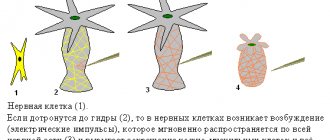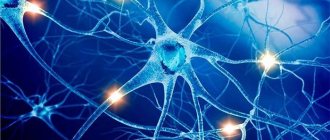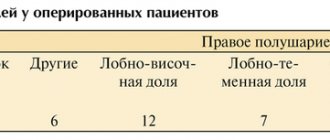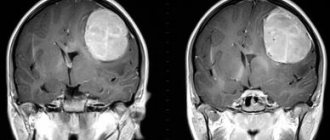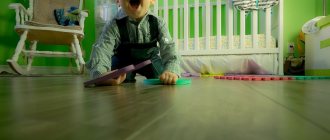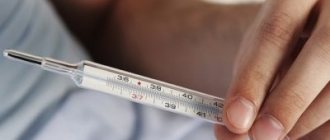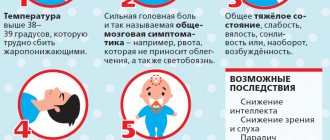Features of the formation of neurosis in a child
Next, consider the origin of childhood neuroses.
Their peculiarity in children is their formation against the background of personality immaturity. To understand, the personality of children is determined by the type of upbringing in the family.
It is worth highlighting the main “inadequate” types of upbringing:
- Insufficient attention to the baby is “hypocustody.”
- Excessive attention is “overprotection”.
- Cruel upbringing.
- Authoritarian parenting.
As a rule, improper upbringing can harm the development of a child’s personality and temperament. As a result, negative character traits and inadequate reactions on the part of the child appear. Sooner or later, this leads to a feeling of inferiority, against the background of which any negative external influence can lead to neurosis. The role of a negative factor can be: a rude word, a loud remark, a change in living conditions and much more.
Given the immaturity of personality in children, typical forms of neurosis rarely develop. More often they have simpler disorders - systemic neuroses. They can manifest themselves in any organ and organ system. It is believed that the choice of damage to one or another organ depends on the hereditary susceptibility (weakness) of the organ or body system. Such weak points in children are often the speech-motor system (formation of stuttering) and the urinary system (development of enuresis).
There is also another development mechanism: a combination of increased nervous tension and the performance of a certain action or movement at this moment. So, this action or movement can lead to the formation of tics in the baby. Thus, neuroses in childhood most often manifest themselves as tics, stuttering and enuresis. In the absence of treatment, systemic neuroses with age often become “classical”, as in adults.
Stuttering is common in children with neuroses.
Symptoms
- Does your child look tired after resting? Does your child get tired faster than usual?
Any activity of the child now takes less time than usual, including homework and games - notice how quickly he stops doing something.
- After physical or mental activity, does he complain of a headache?
Unlike adults, children and adolescents usually do not experience muscle and joint pain. However, headaches and stomach pain may be more common in this age group. Younger children generally cannot describe pain well.
- Does your child have disturbed sleep: does he fall asleep poorly, sleeps restlessly, has nightmares or vivid dreams, wakes up sleep-deprived and always wants to sleep during the day?
Sleep problems are difficult to detect in teens because their sleep cycles change during puberty. Many teenagers go to bed late and often have trouble waking up early. High academic demands, exams, and competitions can also affect sleep.
- The child’s performance at school has decreased, he is more easily distracted, and remembers worse
The appearance of bad grades and a decrease in interest in studying is one of the symptoms, along with complaints of headaches, which a parent can pay attention to. If these symptoms appear after a recent viral infection and do not go away, it’s time to sound the alarm.
- When the child gets up, he or she experiences dizziness, spots, and dark spots
Only with the right help from parents and doctors can a child fully recover.
Types and symptoms of neuroses
There are such types of general neuroses as:
- Hysteria . In children, this condition manifests itself as an excessive, inadequate reaction to dissatisfaction with something. Children with hysteria often “fake it.” They can achieve what they want by manipulating their parents. Manipulation may involve simulating symptoms of the disease. At the same time, the doctor, examining the baby, does not find objective signs of the disease.
- Neurasthenia . In children it manifests itself as irritability and weakness. It is not uncommon to experience violent reactions to minor remarks or actions. Characteristic symptoms of neurasthenia are also: mood swings, increased fatigue, decreased performance, headache, palpitations, sleep disturbance. Pediatricians, examining these children, often identify well-known vegetative-vascular dysfunction.
- Obsessive states . They develop in children with certain psychological characteristics: fearfulness, suspiciousness, indecisiveness. The formation of various fears is typical from an early age. Most sick children develop a variety of defensive reactions in the form of obsessive actions (flapping hands, frequent hand washing, jumping, etc.). At an older age, obsessive thoughts, doubts, and more may appear. At the same time, children may realize the absurdity of their actions and try to fight them.
Below we consider the most common forms of neuroses in children:
- Tiki . Often preceded by obsessive states and actions. They are characterized by stereotypical contractions of individual muscle groups. At an early age, frequent eye blinking often occurs. As it progresses, other muscle groups may be involved in the process (twitching the nose, opening the eyes, raising the eyebrows, lifting the shoulders, and much more). After suffering from acute respiratory viral infections, such children may develop respiratory tics: coughing, coughing, snorting, etc.).
After suffering from acute respiratory viral infections, children may develop respiratory tics (coughing, coughing, snorting, etc.).
- Stuttering . You can also come across another name - logoneurosis. They are synonymous words. Stuttering is a speech disorder associated with convulsive contraction of individual muscle groups of the speech-motor apparatus. You can find out more about the manifestation and treatment of this problem in our article.
- Enuresis . Represents bedwetting. Enuresis is a neurosis only if it develops against the background of psychological trauma or changes in living conditions (visiting kindergarten for the first time, the birth of a brother or sister, etc.). The connection with the environment and situation in which the baby may be is quite characteristic. Over time, children develop a feeling of inferiority due to their illness. At an older age, negative character traits may appear: lack of restraint, anger, irritability. In some cases, enuresis can develop along with encopresis (fecal incontinence).
Neurosis, like other diseases, goes through a number of conditional stages. The effect of treatment depends on the timeliness of assistance. A fairly simple rule: the earlier the help is provided, the more favorable the effect of treatment .
Features of treatment
An experienced psychotherapist has a sufficient number of methods for identifying signs and knows how to cure neurosis in a child 7 years old and younger. In each specific case, the age of the baby and the form of the disorder are taken into account. An important stage is diagnosis. The doctor must make sure that there are no organic diseases of the nervous system. For this purpose, examination of cerebral vessels, CT, and electroencephalogram are performed. In addition, the conversation reveals signs of neurotic reactions.
The treatment arsenal includes homeopathic and medicinal preparations. But the main remedy is psychotherapy, during which the doctor conducts:
- study and correction of the psychological climate in the family;
- activities with the child in the form of games, through which the child learns to overcome difficult situations;
- physiotherapeutic procedures for sedative effects.
Only a specialist knows all the subtleties of how to treat neurosis in a 5-year-old child, toddlers and younger schoolchildren. Never self-medicate.
| Service | Price |
| Initial consultation by phone | for free |
| Detailed consultation by phone/Skype | from 1,000 rubles |
| Consultation with a psychiatrist in the clinic | from 1,500 rubles |
| Home visit | from 5,000 rubles |
| Urgent home visit | from 8,000 rubles |
| Reception of children and teenagers | from 5,000 rubles |
| Reception of adults | from 7,000 rubles |
| Constant observation by a psychiatrist | from 10,000 rubles |
Psychotherapist I.G. Gernet, who practices in Moscow and has extensive experience working with children, offers his assistance in the treatment of childhood obsessive states and other forms of neurosis.
We are accepting parents whose children over 2 years old, preschoolers 4-5 years old and schoolchildren 6-7 years old suffer from symptoms of strange behavior. Based on clinical diagnosis, the cause of the disorder is determined, and you yourself decide on the need for psychological correction of the disorder. Your child will get rid of the habit of biting his nails, sucking his fingers, and grinding his teeth. He will lose his fear of the dark, dogs and other fears that prevent him from living peacefully. In this case, only you and the doctor will know about the treatment, who will ensure complete confidentiality. Share:
How to cure hyperexcitability in a child?
The article was prepared with the participation of pediatric neurologist Lyudmila Valerievna Filippova
Childhood hyperexcitability is a general name for a number of conditions that are characterized by excessive motor activity, anxiety, emotional instability, sleep problems, and increased neuro-reflex excitability.
This syndrome cannot appear out of nowhere without provoking factors . These include: infectious diseases of the mother during pregnancy, or infections suffered by the child in the first weeks of life, various birth injuries, childbirth with complications, fetal hypoxia, toxicosis and nervous tension of the mother during pregnancy.
What is the course of this disorder? The child experiences outbursts of anger, hysterics that arise out of the blue, and rapid mood swings. Children are prone to hooligan behavior. It is difficult for them to focus their attention on one thing for a long time. Babies with hyperexcitability sleep very poorly, they can scream for a long time, their crying is monotonous.
Despite the fact that signs of hyperexcitability appear quite quickly at an early age, parents often do not pay attention to them.
And the following symptoms should be alarming : when the baby wakes up from every noise and has difficulty falling asleep, eats poorly, the palms are often clenched into fists, and the skin has a bluish or reddish tint due to veins located close to the surface of the skin.
At a later age, the child is constantly on the move, it is difficult for him to sit still, he constantly changes his activities, and can be quite aggressive towards his peers.
Unfortunately, there are no special devices, tests or analyzes that can help quickly and accurately diagnose hyperexcitability in a child.
If parents suspect something is wrong, they should immediately consult a pediatrician or neurologist. After examining the child and collecting a detailed history, the specialist may prescribe an ultrasound, x-ray of the cervical spine, electroencephalography and other additional examinations.
The most important thing when diagnosing hyperexcitability is to determine the nature of the disease, which can be neurological, psychological, metabolic, and others. The development of a treatment strategy for the disease depends on this.
Treatment for hyperexcitability includes taking medications that calm the nervous system and psychostimulants, massage, hydrotherapy, and physical therapy. Among other things, such children need to follow a certain daily routine, spend more time in the fresh air, and play in a calm, comfortable environment.
To reduce the likelihood of hyperexcitability in a child, you should take care in advance to prevent the disease, namely, during pregnancy it is important to give up bad habits, adhere to diet and sleep, and, of course, be under constant medical supervision.
And if it so happens that the baby could not be protected from the disease, it is extremely important not to let the disease progress, otherwise the disease will progress and in the future the child may develop a persistent neurotic disorder. Therefore, a timely visit to a neurologist will be the key to your child’s excellent well-being and health in the future.
MAKE AN APPOINTMENT WITH A PEDIATRIC NEUROLOGIST
